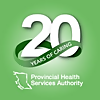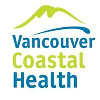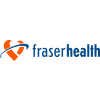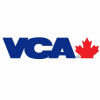Nurse Practitioner, Oncology Clinic
BC Children’s Hospital
Vancouver, BC
New Grads are welcome to apply!
Nurse Practitioners collaborate with clients and other health professionals to identify and assess trends and patterns that have implications for clients, families and communities;
develop and implement population and evidence based strategies to improve health and participate in policy-making activities that influence health services and practices.
As professionals, they participate in peer review and self review to evaluate the outcome of their services at the client, community and population level.
They are responsible for their professional development and maintaining competence and registration as a nurse practitioner.
BC Children's video
What you’ll do
Diagnose and treat previously undiagnosed clients for undifferentiated diseases, illnesses and conditions within the Nurse Practitioner’s scope of practice;
order appropriate screening diagnostic investigations; interpret reports of investigations and analyzes information to monitor progress and plan treatment.
As part of the multidisciplinary team, develop and implement treatment plans. Write orders for treatment and medications;
make patient rounds as appropriate and monitor ongoing care; provide first line care in emergencies.
Establish priorities for management of health conditions; provide follow-up treatment; communicate with clients and families about health findings, diagnose and prognose;
support and counsel clients in their personal responses to diseases, disorders and conditions.
Collaborate and / or consult with physicians or other health care and social service providers as appropriate to assess and diagnose client status.
Accept referrals from, or make referrals to, physicians and other health professionals.
Prescribe drugs within the statutory and regulatory standards, limits and conditions for Nurse Practitioners and within applicable employer policies and procedures.
Apply knowledge of pharmacology and evidence based practice in selecting, prescribing, administering and monitoring the effects of drugs to treat diseases disorders, conditions or injuries.
Participate in research contributing to improved patient care and advances in nursing, health policy development and population health.
Synthesize qualitative and quantitative data from a variety of sources about determinants of health; maintain population health focus by participating in and implementing evidence based screening and health promotion for populations at risk and implements population based harm reduction strategies.
Participate in interdisciplinary staff, including NP & nursing, education and professional development through case presentations, mentoring, role modeling and facilitating the exchange of knowledge in the classroom, the clinical setting and the community;
foster effective health care partnerships.
- Develop, implement and evaluate policies and procedures related to nursing and interdisciplinary practice, and identify and respond appropriately to legal and ethical issues that may arise in patient care.
- Assign work to other nursing and health care personnel; hire staff, provide supervision and evaluate staff performance if required.
- Perform other duties as required.
What you bring
Qualifications
- Current registration as a Nurse Practitioner with the British Columbia College of Nurses and Midwives (BCCNM).
- Must be eligible to complete the Objective Structured Clinical Examination (OSCE) through the British Columbia College of Nursing Professionals (BCCNP).
- Minimum of (4) years of recent, relevant clinical nursing experience.
- Ability to perform the full scope of Nurse Practitioner duties and responsibilities.
You will also have
- Able to define and articulate the specific areas of practice and client population for whom the NP is competent to provide health care services.
- Able to self-direct, interact, and adapt effectively with other professionals in complex, dynamic situations.
- Ability to communicate and collaborate with patients and families about health findings, diagnosis, treatment, self care and prognosis.
- Demonstrated ability to communicate effectively and build relationships with nurses and other health professionals and disciplines using a variety of communication strategies.
- Excellent interpersonal skills and ability to lead a team and work within a team.
- Demonstrated ability to transfer knowledge, teach coach and mentor others; ability to implement and evaluate planned change.
- Able to critically assess and evaluate health research literature to determine best practices; ability to introduce education and evidence based research into practice areas.
- Skill in assessing and recognizing population health trends; able to plan and implement strategies for population based prevention and health promotion.
- Able to supervise others and evaluate the care they deliver as required.
- Commitment to upholding the shared responsibility of creating lasting and meaningful reconciliation in Canada as per TRC (2015) and BC's Declaration on the Rights of Indigenous Peoples Act (2019).
- Knowledge of social, economic, political and historical realities impacting indigenous communities and familiarity with Indigenous Cultural Safety and anti-racism and accompanying reports (BC DRIPA, TRC, etc.).
What we bring
Every PHSA employee enables the best possible patient care for our patients and their families. Whether you are providing direct care, conducting research, or making it possible for others to do their work, you impact the lives of British Columbians today and in the future.
That’s why we’re focused on your care too offering health, wellness, development programs to support you at work and at home.
- Join one of BC’s largest employers with province-wide programs, services and operations offering vast opportunities for growth, development, and recognition programs that honour the commitment and contribution of all employees.
- Access to professional development opportunities through our in-house training programs, including +2,000 courses, such as our San’yas Indigenous Cultural Safety Training course, or Core Linx for Leadership roles.
- Enjoy a comprehensive benefits package, including municipal pension plan, and psychological health & safety programs and holistic wellness resources.
- Annual statutory holidays (13) with generous vacation entitlement and accruement.
- PHSA is a remote work friendly employer, welcoming flexible work options to support our people (eligibility may vary, depending on position).
- Access to WorkPerks, a premium discount program offering a wide range of local and national discounts on electronics, entertainment, dining, travel, wellness, apparel, and more.
Location : 4500 Oak Street, Vancouver BC, V6H 2N9
Applications will be accepted until position is filled.
Hours of Work : Monday Friday, 0800 - 1600
Requisition # 154600E
As per the current Public Health Order, full vaccination against COVID-19 is a condition of employment with PHSA as of October 26, 2021.
What we do
BCCH) provides care for the most seriously ill or injured children and youth from across British Columbia.
BCCH is part of the Provincial Health Services Authority (PHSA).
The Provincial Health Services Authority () plans, manages and evaluates specialized health services with the BC health authorities to provide equitable and cost-effective health care for people throughout the province.
Our values reflect our commitment to excellence and include : Respect people Be compassionate Dare to innovate Cultivate partnerships Serve with purpose.
Learn more about PHSA and our programs :
PHSA and BCCH are committed to employment equity, encouraging all qualified individuals to apply. We recognize that our ability to provide the best care for our diverse patient populations relies on a rich diversity of skills, knowledge, background and experience, and value a safe, inclusive and welcoming environment.
Reconciliation is an ongoing process and a shared responsibility for all of us. The BC Governments’ unanimous passage of the Declaration on the Rights of Indigenous Peoples Act was a significant step forward in this journey one that all health authorities are expected to support as we work in cooperation with Indigenous Peoples to establish a clear and sustainable path to lasting reconciliation.
True reconciliation will take time and ongoing commitment to work with Indigenous Peoples as they move toward self-determination.
Guiding these efforts Crown agencies must remain focused on creating opportunities that implement the Truth and Reconciliation Commission Mandate.




